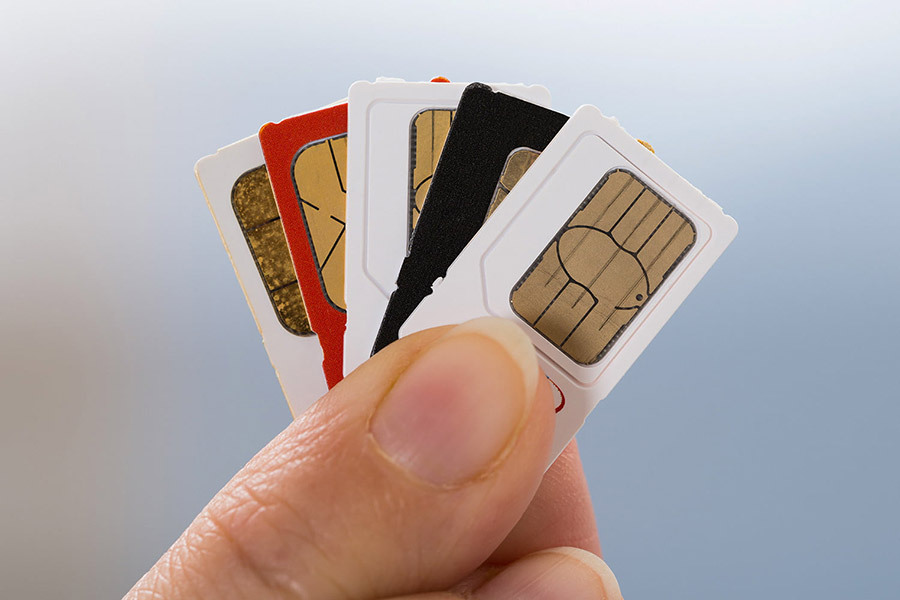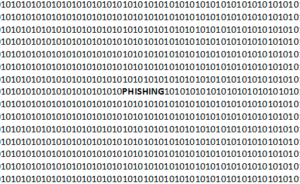phishing (35)
Have you heard of SIM swapping? It’s a new trick that hackers are using to get money and mess up your life.

What is SIM Swapping?
So, what is SIM swapping? It’s when a hacker tricks your cell phone company into thinking that you have activated your SIM card on another phone. In other words, the hackers are taking your phone number and then associating it with a different SIM card. If the switch is a success, your device will be deactivated, and all of your phones, texts, data, and more will come t
Hackers are making a lot of money thanks to phishing attacks these days, and now they are also focusing on gift card scams. One of the most notorious scam groups, Scarlet Widow, which is out of Nigeria, has been boosting its efforts to scam people with gift cards since 2015. This group generally focuses on people in the UK and US and also is known for tax scams, romance scams, and rental cons.

Are you at risk of getting scammed by Scarlet Widow? The group generally focuses on medium to large US b
There are scammers out there targeting conference exhibitors and attendee. What are they looking for? Credit card numbers, money wires and personal information that they can use to steal identities. One of the ways that scammers get this information is by using invitation or list scams. Basically, if you are registered for a conference, speaking at a conference, a conference vendor or just “in the business”, you might get an email…or several emails…that invite you to a conference or offer to sel
Evaldas Rimasauskas, a Lithuanian man, became very rich. How? He is a criminal who used his lying skills to get more than $100 million from companies such as Facebook and Google between 2013 and 2015.
He’s now in jail, but during his trial, Rimasauskas admitted that he was guilty of several crimes including money laundering, wire fraud and identity theft. According to court records, Rimasauskas created a Latvian company called Quanta Computer Incorporated, which was the same name as a computer ha
If you are thinking of jumping onto the Bitcoin bandwagon, or any type of cryptocurrency, you have to make sure that you are watching out for scams. There are a ton of them out there, including the following:

Fake Bitcoin Exchanges
You have to use a Bitcoin exchange if you want to buy or sell Bitcoins, but not all of them are legitimate. Instead, many of them are created for the sole purpose of taking people’s money. Only use well-known exchanges.
Ponzi Schemes
Bitcoins are not exempt from Ponzi sch
Criminals have a reliance on tricking victims to get access to account information, like passwords. This is known as social engineering, and is also called a “confidence crime.” These come in many forms:

Do Not Take the Bait of These Phishermen
- A phishing email that targets a specific person is known as spear-phishing. A spear-phishing email looks like an email that might come from a legitimate company to a specific person. For example, a thief might send a fake email to a company’s employee who h
Even if you have the best security on your computer network, you might have noticed that you still seem to get hacked…or worse. Ask Equifax. Why is this happening? It’s probably because a member of your staff has made it easy for cyber criminals to get inside. It’s really important that you find out who this person is, and keep in mind…it might be more than just one. And it may not even involve security technology.

Part of the problem here, is that employees who “open the door” for these criminal
The Ponemon Institute released a shocking statistic: about 80% of all corporate data leaks is due to human error. In other words, it only takes a single staff member to cause a huge issue. Here’s a scenario: Let’s say that you have an employee, Betty. Betty is lovely. We love Betty. But when Betty is checking her personal email during her lunch break and sees she has an offer that promises a 10-pound weight loss in only a week, she clicks the link. She wants to learn more about it, so she clicks
Not all viruses that find their way onto your computer dramatically crash your machine. Instead, there are viruses that can run in the background without you even realizing it. As they creep around, they make messes, steal, and much worse.

Malware today spies on your every move. It sees the websites you visit, and the usernames and passwords you type in. If you login to online banking, a criminal can watch what you do and after you log off and go to bed, he can log right back and start transferri
Think about how great this would be: Imagine that all of your company data is safe from hackers. Your hardware is totally safe and secure. You have IT specialists at your disposal at all times and have a constant flow of cash to pay them.

Unfortunately, this is a fantasy for most of us. No matter how secure we think our network is or how much we pay our IT people, there is always a chance for a data breach. Does this mean we should stop the fight, though? No way.
Instead of throwing in the towel,
Do you have employees who bring mobile phones to work and use those devices on the corporate network? Do they store company data on these “Bring Your Own Devices (BYOD)”?? Does your company have a policy in place for this?

First, the moment a person brings in their personal phone to work, there is a fusion of personal and business tasks that occur. And, equally as bad, company issued devices are used for personal use as much, if not more than the employees own devices. Not sure you believe this?
If you use Gmail, pay attention! Security experts have announced that there is a very effective phishing scam out there, and you are a target. This scam, which has only been growing over the past couple of months, is also hitting other email providers, too. However, it’s quite difficult to detect.

According to researchers at WordFence, who make a security tool for WordPress, this is a pretty serious attack and can have quite an impact, even for those who are up on security.
Here’s how it works:
You
If you are like most of us, you have undoubtedly received an email that has asked you to click on a link. Did you click it? If you did, you are like 99% of internet users because clicking links in normal. But in some situations you may have found that the link took you to a new or maybe spoofed website where you might be asked to log in. If you ever did this, you may have been the victim of a likely phishing attack, and these attacks are getting fishier all of the time.

A What? Phish? Fish?
It’s c
Think about hackers breaking into accounts. If you think they need top-notch computer skills, you would be wrong. These days, instead of requiring skills behind a keyboard, hackers generally rely on strategy…specifically a strategy called social engineering. This means that hackers don’t have to be technical, but they DO have to be clever and crafty because they are essentially taking advantage of people and “tricking” them into giving information.

There are four main ways that hackers use social
Criminals often rely on tricking their victims to gain access to their passwords and other account information. This act of tricking is called social engineering, also known as a confidence crime, and it comes in many forms.

- A type of phishing e-mail where the criminal targets someone specific is called spearphishing. The spearphishing e-mail will look very much like the typical company e-mail that the real person uses.
- Example: The thief sends a trick e-mail (phishing) to a company employee he fo
If your computer password contains the name of your dog, your favorite vacation spot, and an easy-to-remember numerical sequence, then you are breaking some basic rules of password safety. Even though “BusterBermuda789” might seem impenetrable to you, this is a password security experts say is vulnerable.

Here are five things to know about passwords:
- A long, strong password goes a long way in helping prevent hacking.
- Every account should have a different password.
- A hacker’s password-cracking softwa
Hackers bank heavily on tricking people into doing things that they shouldn’t: social engineering. A favorite social engineering ploy is the phishing e-mail.

How a hacker circumvents two-factor authentication:
- First collects enough information on the victim to pull off the scam, such as obtaining information from their LinkedIn profile.
- Or sends a preliminary phishing e-mail tricking the recipient into revealing login credentials for an account, such as a bank account.
- The next phase is to send out
Phishing-type e-mails are designed to trick the recipient into either downloading a virus (which then gives the hacker remote control of the computer) or revealing enough information for the thief to open credit cards in the victim’s name, get into their bank account, etc.

There are many ways the crook can trick the victim. Here are telltale signs:
- The message wants you to “verify” or “confirm” your password, username or other sensitive information.
- And why must you do this? Because “suspicious act
Beware of the B.E.C. scam, says a report at fbi.gov. The hackers target businesses and are good at getting what they want.
The hackers first learn the name of a company’s CEO or other key figure such as the company’s lawyer or a vendor. They then figure out a way to make an e-mail, coming from them, appear to come from this CEO, and send it to employees.
The recipients aren’t just randomly selected, either. The hackers do their homework to find out which employees handle money. They even learn the